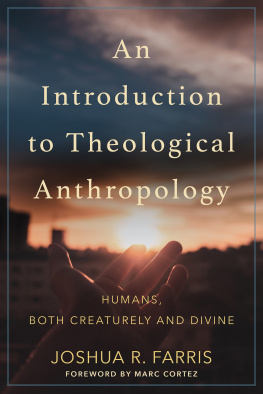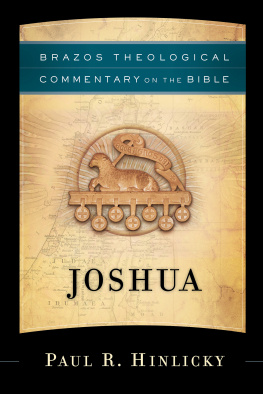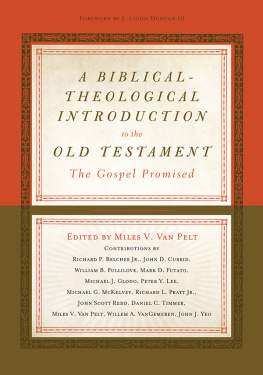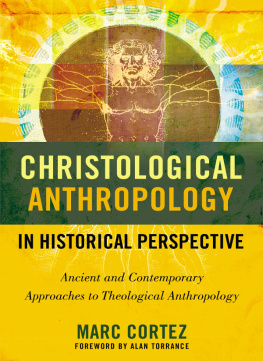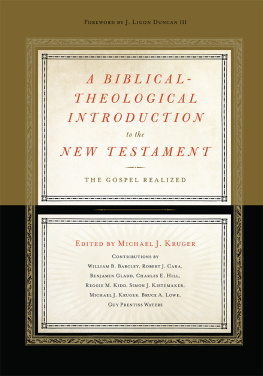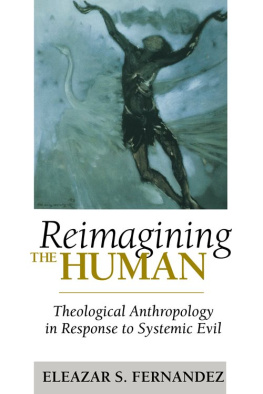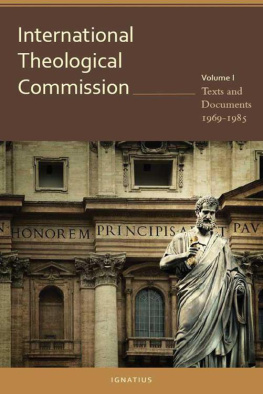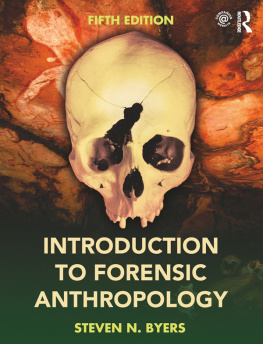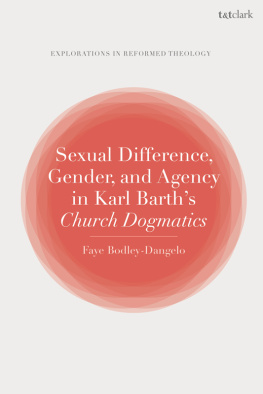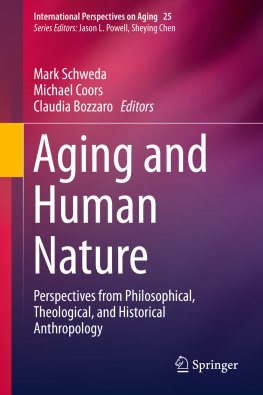Joshua R. Farris - An Introduction to Theological Anthropology: Humans, Both Creaturely and Divine
Here you can read online Joshua R. Farris - An Introduction to Theological Anthropology: Humans, Both Creaturely and Divine full text of the book (entire story) in english for free. Download pdf and epub, get meaning, cover and reviews about this ebook. year: 2020, publisher: Baker Publishing Group, genre: Religion. Description of the work, (preface) as well as reviews are available. Best literature library LitArk.com created for fans of good reading and offers a wide selection of genres:
Romance novel
Science fiction
Adventure
Detective
Science
History
Home and family
Prose
Art
Politics
Computer
Non-fiction
Religion
Business
Children
Humor
Choose a favorite category and find really read worthwhile books. Enjoy immersion in the world of imagination, feel the emotions of the characters or learn something new for yourself, make an fascinating discovery.
- Book:An Introduction to Theological Anthropology: Humans, Both Creaturely and Divine
- Author:
- Publisher:Baker Publishing Group
- Genre:
- Year:2020
- Rating:3 / 5
- Favourites:Add to favourites
- Your mark:
- 60
- 1
- 2
- 3
- 4
- 5
An Introduction to Theological Anthropology: Humans, Both Creaturely and Divine: summary, description and annotation
We offer to read an annotation, description, summary or preface (depends on what the author of the book "An Introduction to Theological Anthropology: Humans, Both Creaturely and Divine" wrote himself). If you haven't found the necessary information about the book — write in the comments, we will try to find it.
Joshua R. Farris: author's other books
Who wrote An Introduction to Theological Anthropology: Humans, Both Creaturely and Divine? Find out the surname, the name of the author of the book and a list of all author's works by series.
An Introduction to Theological Anthropology: Humans, Both Creaturely and Divine — read online for free the complete book (whole text) full work
Below is the text of the book, divided by pages. System saving the place of the last page read, allows you to conveniently read the book "An Introduction to Theological Anthropology: Humans, Both Creaturely and Divine" online for free, without having to search again every time where you left off. Put a bookmark, and you can go to the page where you finished reading at any time.
Font size:
Interval:
Bookmark:
Whats a theologian, whose speciality is God, doing making claims about the nature of humanity? Isnt Reformed theology, with its doctrine of total depravity, itself a crime against humanity? Farriss book responds to these and other contemporary questions, arguing that humans will be able to answer the big questions about meaning, identity, and destiny only insofar as they can position themselves in relation to God and to the story of Gods relationship to humanity attested in Scripture. To an age poised between modern confidence in science that reduces humanity to its materiality and postmodern suspicion of fixed forms that throws open the Pandoras box of human plasticity, Farris calls for a reconsideration of the biblical narrative and a retrieval of the way the church has traditionally interpreted it. While not shirking the contemporary challengestheir name is LegionFarris here lets Jesus Christ, the God-man and light of the world, illumine what it means to be human.
Kevin J. Vanhoozer , Trinity Evangelical Divinity School
Farris offers an eminently analytical account of theological anthropology that will appeal to readers from a variety of Christian denominational backgrounds. Dont be fooled by the textbook appearance: this volume contains plenty of incisive engagements with both historic and contemporary perspectives that both esteem and plague the human condition. This is a kaleidoscopic theology and philosophy in ten jam-packed chapters.
Paul Allen , Corpus Christi College
Joshua Farris has written a very helpful book on a timely topic. Contemporary discussions of the nature of humans are fraught with confusion and opacity. Yet theology has much to offer to alleviate these plights. With clarity and charity, Farris treats a myriad of pertinent topics in this principled introductory text. Scripturally grounded, historically informed, philosophically savvy, and scientifically engaged, this book offers a provocative and compelling theological vision for humanitys place in Gods cosmos.
James M. Arcadi , Trinity Evangelical Divinity School
Joshua Farris is a leading figure in the resurgent field of theological anthropology. In this excellent volume, he distills years of first-rate research into a lively and informative introduction to the subject. This introduction is philosophically savvy as well as theologically substantive in its content and argument. Farris begins every chapter with scriptural and cultural material to prompt initial questions, which he then brings into conversation with the catholic or holy tradition. Along the way, he expounds the body-soul relationship, creaturely and divine purpose, beatific vision, and deification, boldly pointing the way for Protestants committed to a robust account of theological anthropology.
Jerry L. Walls , Houston Baptist University
2020 by Joshua R. Farris
Published by Baker Academic
a division of Baker Publishing Group
PO Box 6287, Grand Rapids, MI 49516-6287
www.bakeracademic.com
Ebook edition created 2020
All rights reserved. No part of this publication may be reproduced, stored in a retrieval system, or transmitted in any form or by any meansfor example, electronic, photocopy, recordingwithout the prior written permission of the publisher. The only exception is brief quotations in printed reviews.
Library of Congress Cataloging-in-Publication Data is on file at the Library of Congress, Washington, DC.
ISBN 978-1-4934-1798-8
Unless otherwise indicated, Scripture quotations are from THE HOLY BIBLE, NEW INTERNATIONAL VERSION, NIV Copyright 1973, 1978, 1984, 2011 by Biblica, Inc. Used by permission. All rights reserved worldwide.
Scripture quotations labeled ESV are from The Holy Bible, English Standard Version (ESV), copyright 2001 by Crossway, a publishing ministry of Good News Publishers. Used by permission. All rights reserved. ESV Text Edition: 2016
Scripture quotations labeled KJV are from the King James Version of the Bible.
Scripture quotations labeled NASB are from the New American Standard Bible (NASB), copyright 1960, 1962, 1963, 1968, 1971, 1972, 1973, 1975, 1977, 1995 by The Lockman Foundation. Used by permission. www.Lockman.org
Scripture quotations labeled NLT are taken from the Holy Bible, New Living Translation, copyright 1996, 2004, 2015 by Tyndale House Foundation. Used by permission of Tyndale House Publishers, Inc., Carol Stream, Illinois 60188. All rights reserved.
Scripture quotations labeled NRSV are from the New Revised Standard Version of the Bible, copyright 1989 National Council of the Churches of Christ in the United States of America. Used by permission. All rights reserved.
To my grandparents James R. Brown and Dorthene Brown, for your examples of how to live and die
Cover
Endorsements
Half Title Page
Title Page
Copyright Page
Dedication
Foreword by Marc Cortez
Preface: HumansCreaturely and Divine
Acknowledgments
Introduction: Where Do We Begin? Humans, Prolegomena, and Method
1. What Am I? Creaturely and Redemptive Identity
2. What Am I and Where Did I Originate? Are We Apes, Humans, or Gods?
3. What Am I in Relation to God? The Image as Creaturely and Divine
4. What Does It Mean to Be Free? Freedom as Creaturely and Divine
5. Who Am I at Birth? Original Sin and Creaturely Failure
6. Who Am I in Christ? Humans, Descended and Ascended
7. Who Are We in Culture? Creaturely and Divine in Work, Race, and Disability
8. Who Are We as Male and Female? Humans as Gendered and Sexual
9. Why Am I Here? Creaturely Living, Dying, and the In-Between
10. Why Do I Exist? Creaturely Process and Divine Destiny
Conclusion: Where Do We Go from Here?
Bibliography
Suggested Readings
Author Index
Scripture Index
Subject Index
Back Cover
M ARC C ORTEZ
H umanity is a hot topic in todays world. You dont have to look far to find discussions about what it means to be humanoccasionally identified as such but often approached through conversations that on the surface are more about ethics, politics, and other social issues. However, debates about sexuality, race, medical technologies, parenting, education, and other similar discussions ultimately express various visions of what it means to be human and how that should shape our visions of human flourishing in the world today. Once people see this, they usually come to appreciate rather quickly the vital importance of thinking about anthropology today.
Yet if you ask people about specifically Christian perspectives on what it means to be human, it will not take long to hear about three problematic ideas, each of which seems to render many Christian anthropologies suspect, if not downright harmful. In one corner, we have substance dualism, which many view as sundering the spiritual from the physical, creating a hierarchy in which the true meaning of humanity is found in the higher, spiritual realities of the immortal soul that ultimately trump mundane things like eating, drinking, and having sex. Such a view seems inevitably to denigrate created realities in general and the human body in particular. In another corner, we have Reformed theology with its doctrine of total depravity, in which not only are all human persons guilty of sin (Christ excepted) but also every aspect of human existence has been thoroughly corrupted by sin. For many, such a view seems to make sin such a prominent focus of a Christian anthropology that we lose the ability to appreciate the goodness and beauty of the human person, viewing ourselves only as objects of wrath and condemnation. Finally, in the corner that completes our unholy anthropological triangle, we have traditional ideas about the creation of the human person, whereby God immediately creates each and every human soul. As comforting as it might have been in earlier eras to emphasize Gods direct role in the creation of each unique human person, such a quaint idea seems to many to be utterly untenable in the light of what we now know about the evolutionary history of humanity and the inseparable relationship between the mind/soul and the body, which requires a more complicated, messier, and less immediate way of understanding Gods role in the creation of humanity.
Font size:
Interval:
Bookmark:
Similar books «An Introduction to Theological Anthropology: Humans, Both Creaturely and Divine»
Look at similar books to An Introduction to Theological Anthropology: Humans, Both Creaturely and Divine. We have selected literature similar in name and meaning in the hope of providing readers with more options to find new, interesting, not yet read works.
Discussion, reviews of the book An Introduction to Theological Anthropology: Humans, Both Creaturely and Divine and just readers' own opinions. Leave your comments, write what you think about the work, its meaning or the main characters. Specify what exactly you liked and what you didn't like, and why you think so.

